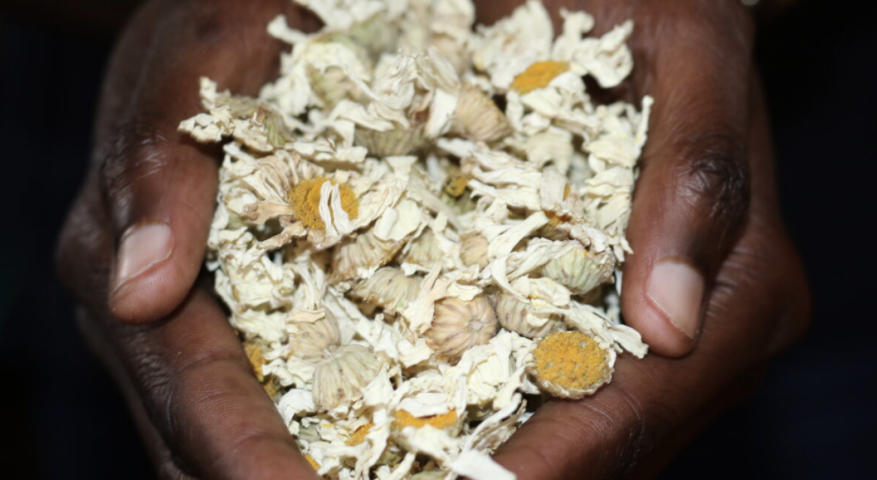When Caleb Yegon was a young boy, he remembered his family farming pyrethrum in Kenya.
The daisy-like flower that’s part of the Chrysanthemum family grew in a sectioned-off part of their small farm outside Molo in Nakuru County. It was a valuable crop, and provided his family with a cash income.
In the 1990s, Caleb’s parents were amongst nearly 200,000 small-scale growers of pyrethrum in Kenya. A highly effective natural pesticide and deadly to most insects, it was Kenya’s third largest export crop. Kenya controlled over 90% of the world’s pyrethrum market.
The introduction of synthetic pesticides devastated Kenya’s indigenous pyrethrum trade. Prices paid for the dried flower collapsed, and by the early years of the new millennium, most growers had turned their land to other uses. Kenya’s share of the global market fell to just 2%.
That situation has now changed again, and 26-year-old Caleb Yegon is at the vanguard of that change.
In recent years, the potentially harmful side effects of chemical pesticides have become more widely understood, while the global marketplace has again turned to the small white petalled pyrethrum as a healthier and safer alternative for farmers. Kenyan production of the crop has trebled.
26 year old Caleb was part of a recruitment drive undertaken by the Kentegra Company to identify growers in Nakuru, in early 2020. He signed up, received certified seed and seedlings, and began growing pyrethrum on a quarter acre plot. Caleb also received a soil testing kit from Kentegra’s Nairobi-based partners Crop Nutrition Laboratory Services Ltd (Cropnuts), who were brought on board to address the importance of soil fertility to pyrethrum production.
The project is supported by Self Help Africa’s AgriFI Kenya Challenge Fund, who recently helped Cropnuts to establish an agri-clinic with soil testing lab, in Nakuru County. To date, soil and leaf tests have been provided to 3,000 of the 6,000 pyrethrum farmers now working with Kentegra. A mobile app has also been developed to provide farm advice.
Caleb Yegun now employs four part-time labourers on his small farm.
He’s producing pyrethrum every two two weeks for ten months, each year, and since he started has harvested and sold 133kg of dried flower. Caleb says that he is paid KSH200-230 (€1.55-1.78) per kilo.
The income that he has earned has enabled Caleb to start building a new two-bedroom home for his young family.
“I love farming pyrethrum. This year, when I have harvested the maize on my farm I will expand the area I am using for pyrethrum. My plan is to grow it on one acre of my land,” he says.


